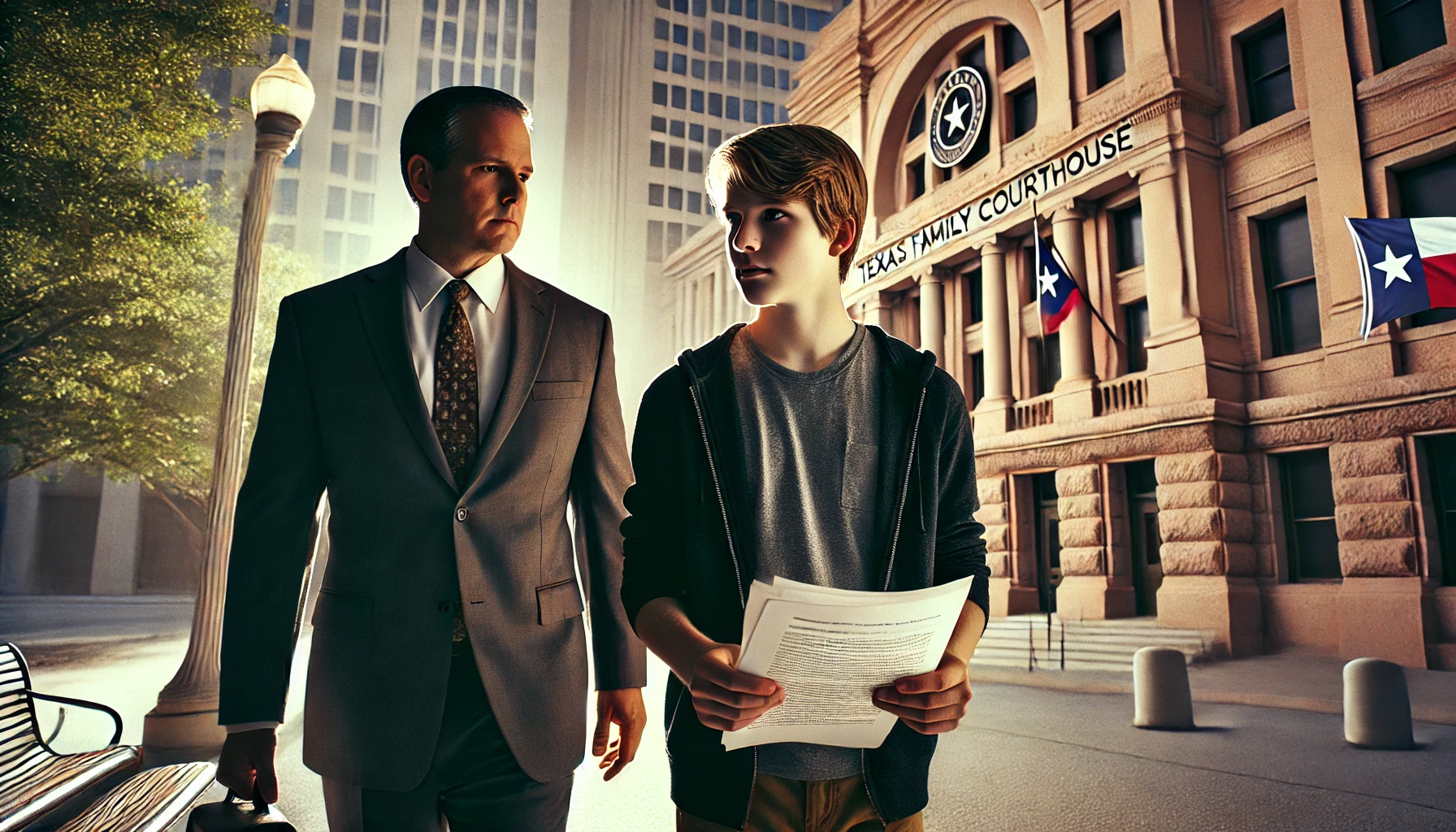

How Protective Orders Impact Child Custody and Divorce in Texas: What You Need to Know

How Protective Orders Impact Child Custody and Divorce in Texas: What You Need to Know
In Texas, a domestic violence protective order doesn’t just affect your ability to contact your partner or return home — it can also reshape your entire family structure. If you’re going through a divorce, child custody dispute, or SAPCR (Suit Affecting the Parent-Child Relationship), a protective order can limit your parental rights, visitation schedule, and standing in court.
Even if you haven’t been convicted of a crime, a civil protective order can lead to serious long-term consequences in family court.
In this post, you’ll learn:
- How protective orders affect custody, visitation, and divorce proceedings
- The difference between criminal and civil protective orders
- What Texas law says about domestic violence and parental fitness
- What steps to take if you’re trying to protect your relationship with your child
Step 1: Understanding the Legal Impact of a Protective Order
Protective orders — whether issued after an arrest or through a civil petition — can impact:
- Conservatorship (legal custody)
- Possession and access (visitation)
- Decision-making rights for the child
- Residency restrictions
- Eligibility for joint custody
- The outcome of a pending or future divorce
Even if you are not criminally convicted, the court may treat the protective order as evidence of family violence in any divorce or custody case.
Step 2: What Does Texas Law Say About Domestic Violence and Custody?
Under Texas Family Code § 153.004, if the court finds that a parent has:
- Committed family violence, and
- The violence was directed toward a spouse, child, or household member,
…then the court presumes that appointing that parent as a joint managing conservator is not in the child’s best interest.
In simpler terms: a protective order can disqualify you from joint custody, even without a criminal conviction.
Step 3: Types of Protective Orders That Affect Family Law
1.
Magistrate’s Emergency Protective Order (MOEP)
- Issued after an arrest
- May temporarily suspend visitation rights or allow only supervised contact
2.
Temporary Ex Parte Protective Order
- Can be filed by your co-parent or spouse in family court
- May block contact with children or home until the final hearing
3.
Final Protective Order
- Lasts up to 2 years or more
- Creates a legal finding of family violence
- Has long-term consequences for custody, gun rights, and immigration status
Step 4: How Courts Handle Custody After a Protective Order
If a protective order is in place, courts may:
- Order supervised visitation only (through a third party or a safe exchange center)
- Prohibit overnight stays or unsupervised time
- Deny possession and access altogether
- Prohibit the parent from attending school events or medical appointments
- Impose restrictions on communication with the child or co-parent
These orders may be temporary — but they can also become permanent parts of a custody order if the court determines ongoing risk.
Step 5: How Protective Orders Affect Divorce
During divorce proceedings, protective orders may:
- Award exclusive use of the family home to the protected spouse
- Prevent contact with the other party or shared children
- Influence spousal support and property division
- Accelerate or complicate custody decisions
- Lead to temporary restraining orders (TROs) in addition to the protective order
Even if the protective order is unrelated to the divorce filing, the family court judge will consider it in making final orders.
Step 6: Fighting for Custody After a Protective Order
If you’re subject to a protective order, you still have rights — but you must act strategically.
Your attorney can help you:
- Dispute the protective order or seek modification (e.g., peaceful contact, child access)
- File for a custody evaluation to assess both parents’ roles
- Gather character witnesses, parenting records, and proof of stability
- Show completion of anger management, counseling, or BIPP
- Request graduated visitation to restore parenting time over time
Texas judges must prioritize the best interest of the child — not the allegation alone. You need to present evidence that you’re capable, safe, and committed to your child’s wellbeing.
Step 7: Can the Protective Order Be Lifted to Allow Child Contact?
Yes — in some cases.
If the protected party agrees, or the judge determines that contact is safe, the court may:
- Modify the protective order to allow peaceful contact for co-parenting
- Set specific terms for communication, visitation, and exchange
- Schedule a hearing to review the need for continued restrictions
But only the court can change the order — not the protected person.
Step 8: County-by-County Considerations
Harris County
- Family violence protective orders are integrated with custody and SAPCR cases
- Judges may suspend visitation pending evaluations
Fort Bend County
- Courts move quickly in emergency custody matters
- Protective orders often trigger a separate custody hearing within weeks
Galveston County
- Judges take a conservative approach; supervised visitation is often the default after a protective order
Brazoria County
- More flexible in cases with co-parenting cooperation
- Early legal action may allow for graduated access or agreed modifications
Final Tip: Don’t Let a Protective Order End Your Role as a Parent
Protective orders are powerful — but they’re not the end of the story. With the right legal strategy, you can fight for your parenting rights, restore contact with your children, and prevent unfair long-term custody restrictions.
At Walker Law Office, attorney Mekisha Walker helps parents across Harris, Fort Bend, Galveston, and Brazoria Counties navigate custody and divorce issues tied to domestic violence allegations. As a former prosecutor, she knows how to present your side, protect your rights, and fight for your family.
Call (713) 228-2611 or visit https://www.walkerlawhouston.com/contact to speak with a lawyer near you today.


